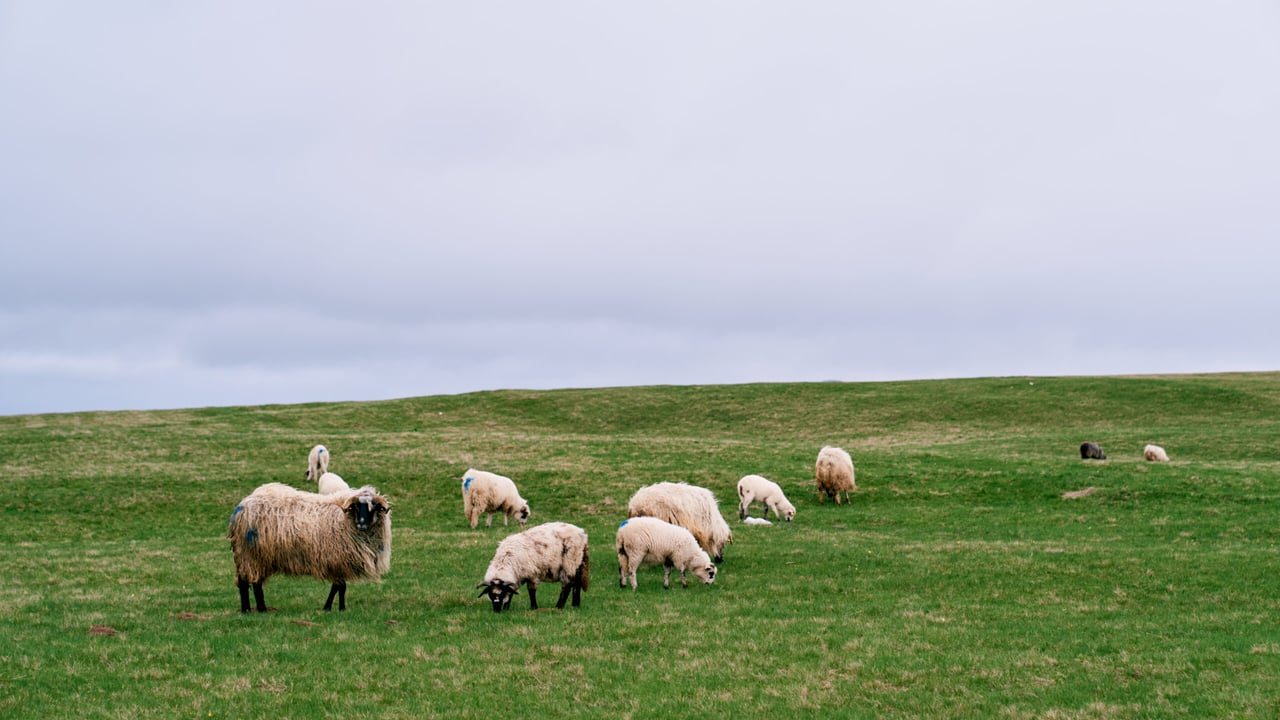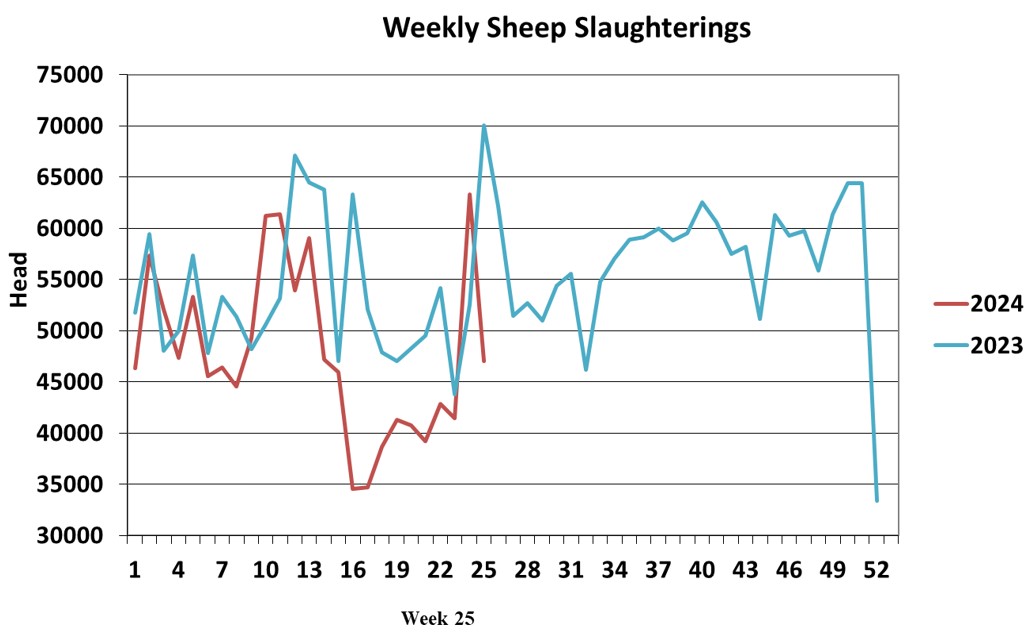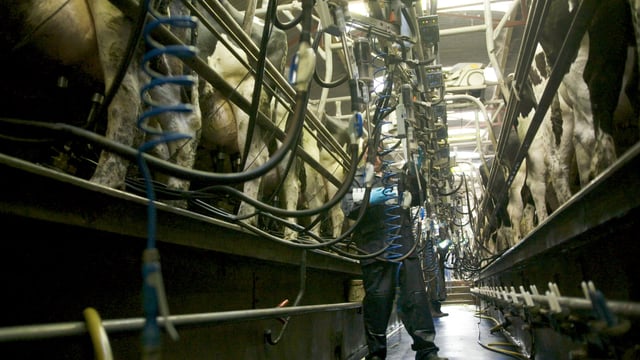Sheep kill: Supplies drop by 16,000 head post-peak
The most recent sheep kill figures from the Department of Agriculture, Food and the Marine (DAFM) have shown that supplies of sheep have dropped significantly following the peak week for slaughter in 2024 to-date.
Last week, during week 25 (ending Sunday, June 23) there were a total of 47,048 sheep slaughtered.
This represents a drop of over 16,000 head of sheep, or a 25% decrease in the space of a week in throughput.
A significant decrease was also seen in Great Britain during this same period, as numbers were down 14% on the week before, following a spike in kill due to procurement for Eid-ul-Adha.
This was according to the Agriculture and Horticulture Development Board (AHDB) that stated that compared to the equivalent post-Eid weeks in 2023 and 2022, numbers of sheep were back "considerably".
The table below gives an overview of the sheep kill for week 25 (ending Sunday, June 23) and the cumulative kill to date this year, compared to the same time period in 2023.
| Type | 2024 week 25 | 2024 cumulative | 2023 weekly | 2023 cumulative | Weekly difference | Cumulative difference | 24 vs. 23 % weekly difference | 24 vs. 23 % cumulative difference |
|---|---|---|---|---|---|---|---|---|
| Lambs/hoggets | 5,201 | 886,570 | 8,753 | 965,135 | -3,552 | -78,565 | -41% | -8% |
| Spring lambs | 37,163 | 192,877 | 55,870 | 243,777 | -18,707 | -50,900 | -33% | –21% |
| Ewes and rams | 4,679 | 115,097 | 5,444 | 132,996 | -765 | -17,899 | -14% | -13% |
| Light lambs | 5 | 90 | 4 | 120 | 1 | -30 | 25% | -25% |
| Total | 47,048 | 1,194,634 | 70,071 | 1,342,028 | -23,023 | -147,394 | -33% | -11% |
This week it is spring lambs that are making up the bulk of the kill figures, as there were 37,163 slaughtered.
Spring lamb throughput remains down on this time last year by over 50,000 head.
78,565 fewer hoggets have been slaughtered to-date this year when compared to the same period last year, while the overall throughput in 2024 is behind the cumulative total up to the same period of 2023 by over 147,000 head.
Taking a look at this year’s throughput figures to date, 1,194,634 sheep have been processed so far in 2024.
Of that figure, 886,570 have been lambs/hoggets, 192,877 were spring lambs, with the rest made up of ewes and rams (115,097), and a small portion of light lambs (90).






